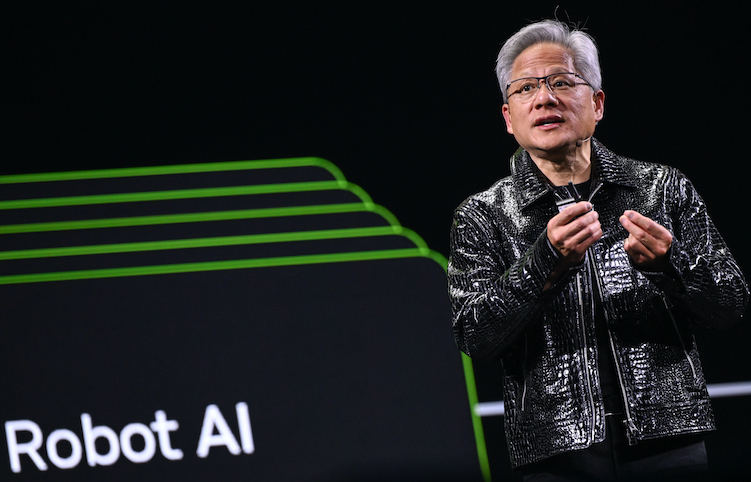(ATF) With progress on Covid-19 vaccines, prospects for the world economy in 2021 are brightening. But the same cannot be said yet for US-China ties, despite hopes for an improvement under Joe Biden. Investors snapping up Chinese assets must guard against complacency and price in continued political risk.
Global markets are riding high on confidence that the battle against coronavirus is nearing the end, coupled with the Chinese economy’s impressive recovery from the pandemic. One element is missing from the mix, however: signs of a thaw in relations between Washington and Beijing.
Illustrating the depth of anti-China sentiment across the US political spectrum, the House of Representatives unanimously passed a bill last week that could force Chinese companies to delist from US stock exchanges if they fail to comply with the country’s accounting rules.
A day later, the administration of outgoing President Donald Trump added China’s top chipmaker, SMIC, and oil giant CNOOC to a blacklist of companies with suspected links to the Chinese military, exposing them to possible US sanctions.
And President-elect Biden, well aware of the domestic political obstacles in the way of a return to normal trade with China, said he had no immediate plans to remove the 25% tariffs that Trump has slapped on about half of China’s exports to the US. Nor was he in a rush to scrap the Phase 1 managed trade deal that requires Beijing to buy $200 billion more in US goods and services.
Biden told the New York Times his priority would be to consult with America’s allies in Europe and Asia with a view to crafting a coherent strategy towards China: “I’m not going to prejudice my options.”
On the face of it, markets were arguably right to shrug off as old news the latest twist in the downward spiral in relations between the world’s two largest economies.
The Trump administration has long been targeting Chinese firms it deems to be a threat to national security, notably telecoms giant Huawei, and it is sensible for Biden to keep tariffs in place to give him leverage when negotiating with Chinese President Xi Jinping.
The point, though, is that foreign investors are increasingly vulnerable to a deterioration in the diplomatic climate or a sudden shift in Chinese domestic policy because of their fast-rising exposure. Over the past six years foreign holdings of Chinese debt on the interbank market have risen more than six-fold to Rmb 3.1 trillion, lifting their market share to more than 3%.
In a risk-off market, it is easy to imagine investors taking fright at the turmoil triggered by some recent Beijing initiatives. These include the abrupt tightening of rules on Chinese fintech firms, which led to Ant Group pulling its record IPO, and the decision to let some state-owned enterprises (SOEs) companies default on their debts, overturning the assumption they would be bailed out by their local government owners.
As well as serving as a reminder that the Communist Party remains firmly in charge of anything and everything, the new policies seek to curb financial risk, reduce leverage in the economy and inject some discipline into the bond market. That makes them welcome.
Fraught with risk
But removing the blanket implicit guarantee backing SOE debt is fraught with risk. As the Wall Street Journal put it: “Beijing’s gamble is that, with a sufficiently deft touch, the central government can harness bad debts in the cause of overdue financial reforms. Maybe it will work, but a controlled burn of the financial underbrush always carries the risks of becoming a forest fire.”
If instability spreads to other parts of the debt market, it could lead to financial distress among the mutual funds and banks that own the bonds. That, in turn, could deter the foreign capital China is counting on to professionalise its financial markets and fund likely future current account deficits.
In short, China’s markets could be more fragile than they appear.
Diana Choyleva with Enodo Economics in London is particularly worried about local governments, which have total debt outstanding of almost Rmb2.5 trillion, or about 10% of GDP. Fully a quarter of the debt falls due in 2021 and Choyleva fears a wave of possible defaults, which she said would spell upheaval.
This, then, is the economic and financial context in which Biden’s advisers will be crafting his China policy. What to do?
Andy Rothman with Matthews Asia said simply not calling China an enemy would take the chill off the relationship. It would also provide some comfort for US investors worried that the Trump administration’s bellicose language had raised the political risk of investing in Chinese bonds and equities.
Demonisation
“Most importantly, ending the demonisation of China, and pursuing engagement in concert with US allies and partners, especially in Asia, is the best way to make clear to Beijing that its policies and practices will have to continue to evolve towards global norms if China wishes to reach its full economic potential, and take a more prominent role in regional and global institutions,” Rothman wrote.
Assuming that Biden does seek to engage China, and that Xi doesn’t send him to an Australian-style doghouse for slights perceived or real, there are several areas of common concern where the two countries could cooperate. Vaccine distribution in developing countries, WTO reform, debt relief for Africa and planning for November’s climate change summit in Glasgow spring to mind.
But the fact remains that the core political values of the US and China remain fundamentally incompatible. Finding a modus vivendi between the current superpower and the aspiring one is likely to take longer than a four-year presidency.
Arvind Subramanian, a former chief economic adviser to the Indian government, said Joe Biden should have no illusions. “China is too important to ignore, but the challenge it presents defies easy solutions. America and the world should brace themselves for the long haul,” he wrote.
























